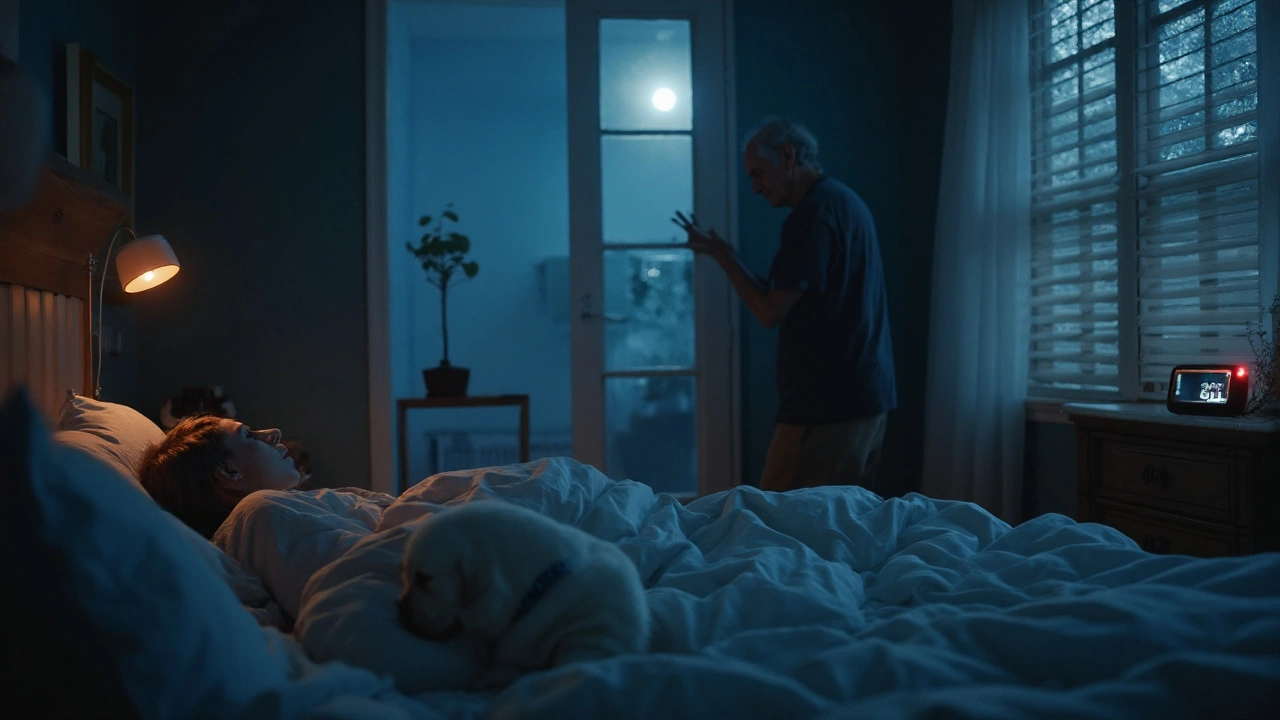Nocturia and Depression: Why Nighttime Trips Matter
If you find yourself getting up three, four, or more times a night to pee, you’re not just dealing with a leaky bladder. Those extra trips can chip away at your mood, energy, and overall mental health. The connection between nocturia (nighttime urination) and depression isn’t a mystery – it’s all about sleep loss, frustration, and the way our bodies react to stress.
Every time you roll out of bed, you break a sleep cycle. Short, broken sleep means you never hit the deep, restorative stages that help your brain reset. Without enough deep sleep, the brain’s chemistry shifts, making you feel irritable, sluggish, and more prone to low mood. Add the embarrassment of having to use the bathroom in the dark, and you can see how a simple bladder issue can snowball into a bigger emotional problem.
Why nocturia can trigger low mood
First, think about the physical toll. During the night, your body releases a hormone called antidiuretic hormone (ADH) that tells your kidneys to hold onto water. As you age or develop certain health conditions, ADH production drops, so you make more urine at night. More urine means more bathroom trips, which in turn means less sleep.
Second, the mental side‑effects. When you’re constantly waking up, you start to dread bedtime. That anxiety can turn into a negative loop: you worry about another bathroom break, you sleep poorly, and the next day you feel down. Over weeks or months, that built‑up stress can manifest as clinical depression.
Third, medications matter. Some drugs used for high blood pressure, diuretics, or even antidepressants can increase nighttime urination. If you’ve recently started a new prescription and notice more trips, it’s worth checking with your doctor. Sometimes a tiny dosage tweak can make a huge difference.
Practical steps to break the cycle
1. Track your fluid intake. Write down how much you drink after dinner. Aim for a gentle taper – sip less after 7 pm and keep a water bottle handy during the day.
2. Limit bladder irritants. Caffeine, alcohol, and spicy foods can make the bladder overactive. Cutting back in the evening often reduces night‑time urgency.
3. Check your meds. Talk to your prescriber about any drugs that might be raising your urine output. A simple switch or timing change can help.
4. Create a sleep‑friendly environment. Keep the bedroom cool, dim, and free of screens. A relaxed mind makes it easier to fall back asleep after a bathroom trip.
5. Try pelvic floor exercises. Strengthening the muscles that control urination can improve bladder control over time. A few minutes a day of Kegels can add up.
6. Consider a medical review. If you’re over 50, have diabetes, or a prostate issue, get a check‑up. Doctors may suggest a medication that reduces nighttime urine production, like desmopressin, or treat an underlying condition.
7. Mind your mood. If you notice a drop in energy or an increase in sadness, don’t ignore it. Talk to a mental‑health professional. Even brief counseling or a support group can help you manage the emotional side of nocturia.
Remember, fixing nocturia isn’t just about the bathroom – it’s about getting back to a full night’s rest and a brighter mood. Small changes to fluid habits, medication timing, and bedtime routines can add up fast. If you try these steps and still wake up multiple times, reach out to a healthcare provider. A simple tweak can turn those restless nights into restful ones, and that’s a win for both your bladder and your mind.
BPH Symptoms and Mental Health: What Urinary Problems Do to Your Wellbeing
- Cheryl Moran
- September 15, 2025
- 20 Comments
How urinary symptoms from BPH affect mood, sleep, and quality of life-plus practical steps, NHS pathways, risks, and evidence-backed tips to feel better.
read more